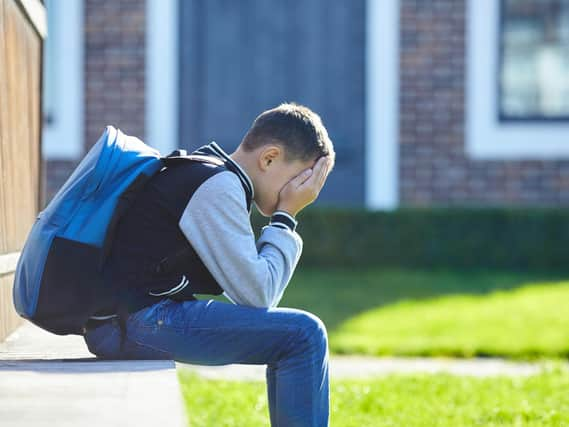Aylesbury Vale Child Poverty levels on the increase since 2015


New figures released today reveal that child poverty has continued to rise in the majority of constituencies in the UK, even before the Covid-19 pandemic, highlights national poverty charity Turn2us.
The latest data shows that 31% of children in Wales are in poverty, 30% in England and 24% in Scotland and Northern Ireland, according to the research carried out by Loughborough University for the End Child Poverty coalition.
Advertisement
Hide AdAdvertisement
Hide AdAnd Aylesbury Vale is not bucking this national trend, with a reported 532 increase of children living in child poverty since 2014/15.
The number of children living in child poverty in Aylesbury Vale 2014/15 was 9092.
The number has now increased to 9624.
This roughly equates to 22.6% of children in Aylesbury Vale now living in child poverty.
Stagnating incomes, high housing costs and cuts to the social security system have pushed many families to the brink.
The rise in poverty comes despite most families working.
Advertisement
Hide AdAdvertisement
Hide AdThe proportion of children living in poverty who are in working households has increased from 67% five years ago to 75% now.
Sara Willcocks, Head of External Affairs at Turn2us, said:
“The impact of growing up in poverty is well documented; children in low income households have worse mental and physical health, they do less well in schools and have fewer opportunities in the future. This is why it is morally unacceptable for any child, let alone millions, to be allowed to grow up in financial hardship.
“Unfortunately, our children are now paying the debt for a decade of austerity, cuts and freezes. Wages have been allowed to remain low, rents have been free to rise and nothing has been done to tackle the soaring cost of living.
“If the government truly believes in compassion and justice, ministers must fully commit to solving it. We are urging the Prime Minister to listen to our recommendations and include them in a comprehensive strategy to end child poverty once and for all.”
Advertisement
Hide AdAdvertisement
Hide AdThe Government uses 'absolute poverty' as a measure instead of 'child poverty'.
Child poverty is: "A child is defined as being in poverty when living in a household with an income below 60% of the UK's average."
The Government's 'absolute poverty' definition is: "The absolute poverty line is fixed in real terms, so provides a better measure of how the incomes of the lowest earners compares with changes in the cost of living. Absolute poverty will only increase if low-income households are worse-off financially, whereas relative poverty can increase even if low-income households’ incomes are rising."
In response to these figures, the Government said:
“Latest figures show that the number of children in absolute poverty has fallen by 300,000 since 2010.
Advertisement
Hide AdAdvertisement
Hide Ad“We are committed to supporting families most in need, spending billions more on welfare and planning a long-term route out of poverty by protecting jobs through furlough and helping people find new work through our Plan for Jobs. We also introduced our £269 million Covid Local Support Grant to help children and families stay warm and well-fed throughout the pandemic.”